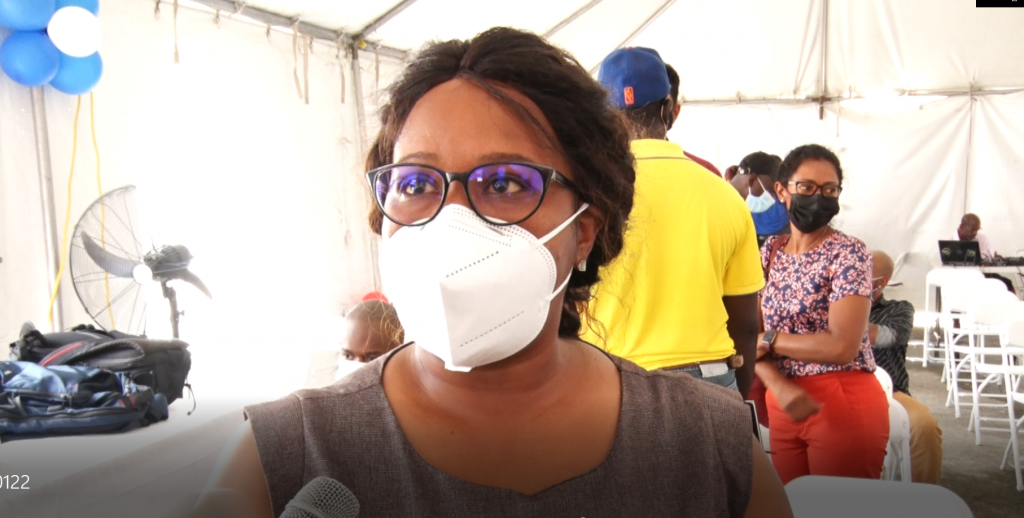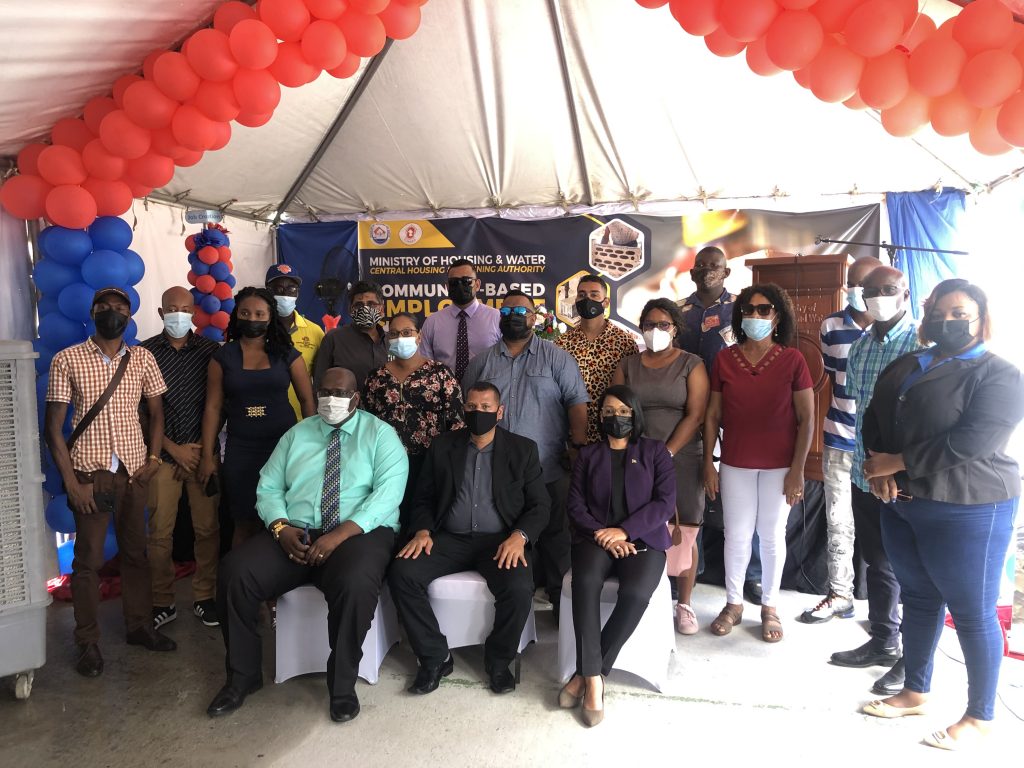
$20M block-making community project to provide 400 jobs
By Vishani Ragobeer
A $20 million Community-based Employment Stimulation Project (CESP) has been launched by the Ministry of Housing and Water to create employment for some 400 people in vulnerable communities across the country.
The project, which was launched on Monday in Tiger Bay, Georgetown, is expected to have 80 direct beneficiaries each year for five years and is also expected to stimulate indirect employment in the targeted communities.
The first phase of the project will roll out in the community of Tiger Bay and last from May to November 2021. This first phase is expected to cost $3.9 million; this figure does not include the engineer’s estimates.
According to the Minister of Housing and Water, Collin Croal, Guyana currently has a large demand for cement blocks due to the ongoing expansion of the construction sector and the Housing Ministry saw this demand as an opportunity to provide employment in communities.
Importantly, he noted that there is an immediate demand for quality cement blocks for the houses being built in the Cummings Lodge and Prospect housing schemes. And, 10 contractors have already agreed to purchase blocks through this project, signalling their need for 123,000 blocks.
“Participation in this activity will allow those of you who are willing to become exposed to the world of work,” the minister said, adding that all the materials, relevant training and even credit will be provided by the Central Housing and Planning Authority (CH&PA) to ensure that residents can supply the blocks to the contractors.
Through this project, existing block makers will be supported by the CH&PA to scale up their business and supply to contribute to the homes being constructed by the agency. Additionally, in communities where there are no established block makers, the agency will train interested groups.
Beyond Tigey Bay, the minister indicated that this project will be taken to other communities in Region Four (Demerara-Mahaica) including Albouystown, East Ruimveldt, West Ruimveldt, Sophia, Agricola, Mocha, Lusignan and Buxton, as well as Canje, in Region Six (East-Berbice Corentyne) and Linden, in Region 10 (Upper Demerara-Berbice). Additional areas will be identified in Region Three (Essequibo Islands-West Demerara).
In the community of Albouystown, Simone McClintock owns a small block-making business and employs one worker at the moment. While speaking with the News Room, she highlighted that this project would allow her to expand her business and employ more people in her community.

“The project here today is very good especially for my Albouystown community because there are a lot of youths not doing anything (and) are unemployed and this will be very good for them,” she said too.
In the community of East Ruimveldt, a number of young residents shared similar sentiments. Ras Ogawe Hinds, who is better known as DJ Garwin, said the initiative will help the community to create a block-making business so that young people would be empowered.
When the project comes to fruition, Minister Croal said that it will mean the generation of direct and indirect employment in communities and guaranteed employment for as long as the projects last. Thereafter, he noted that residents will have the relevant skills to seek out their own employment opportunities.
Chief Executive Officer (CEO) of the CH&PA, Sherwyn Greaves, noted that the housing authority will be working alongside the Guyana National Bureau of Standards (GNBS) to ensure that the cement blocks made are of a high standard so that the houses built will be built to “last forever.”

He also encouraged residents of the targeted communities to take advantage of the opportunity being provided, stating: “We are building 25,000 houses in the next five years so that alone should tell you how many blocks we will need.”
Meanwhile, Minister within the Ministry of Housing and Water, Susan Rodrigues, highlighted that the CESP is an indication of the government’s commitment to generating employment for Guyanese. She highlighted too that this project was initiated by none other than President Dr Irfaan Ali himself.
“We chose the most vulnerable communities because we are convinced as a government that we need to improve lives; that we need to improve the standard of living of people regardless of race, political affiliation and geographical location.”
She also highlighted that such a project will help bridge the country’s wealth gap and empower people to generate their own income.





